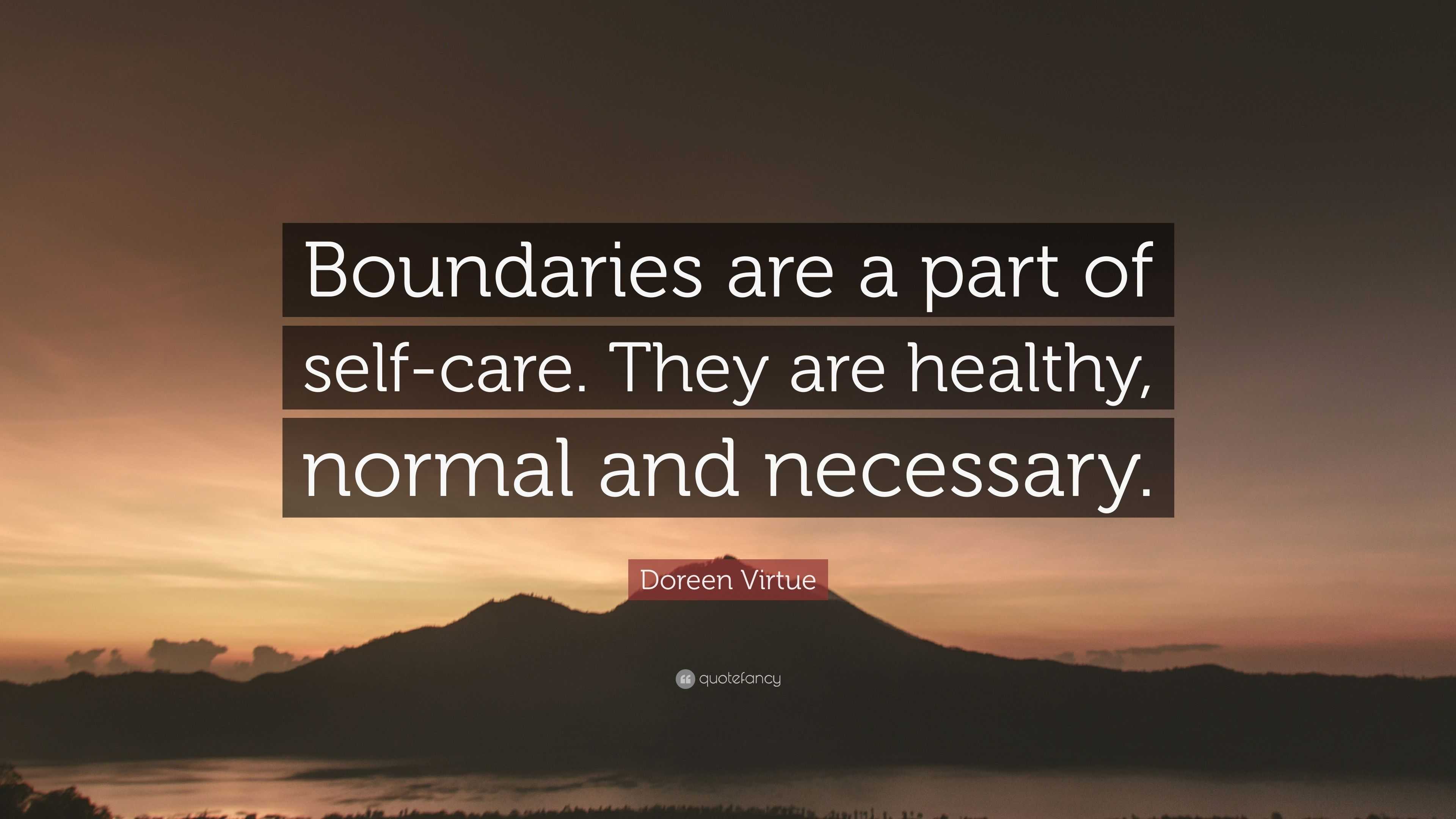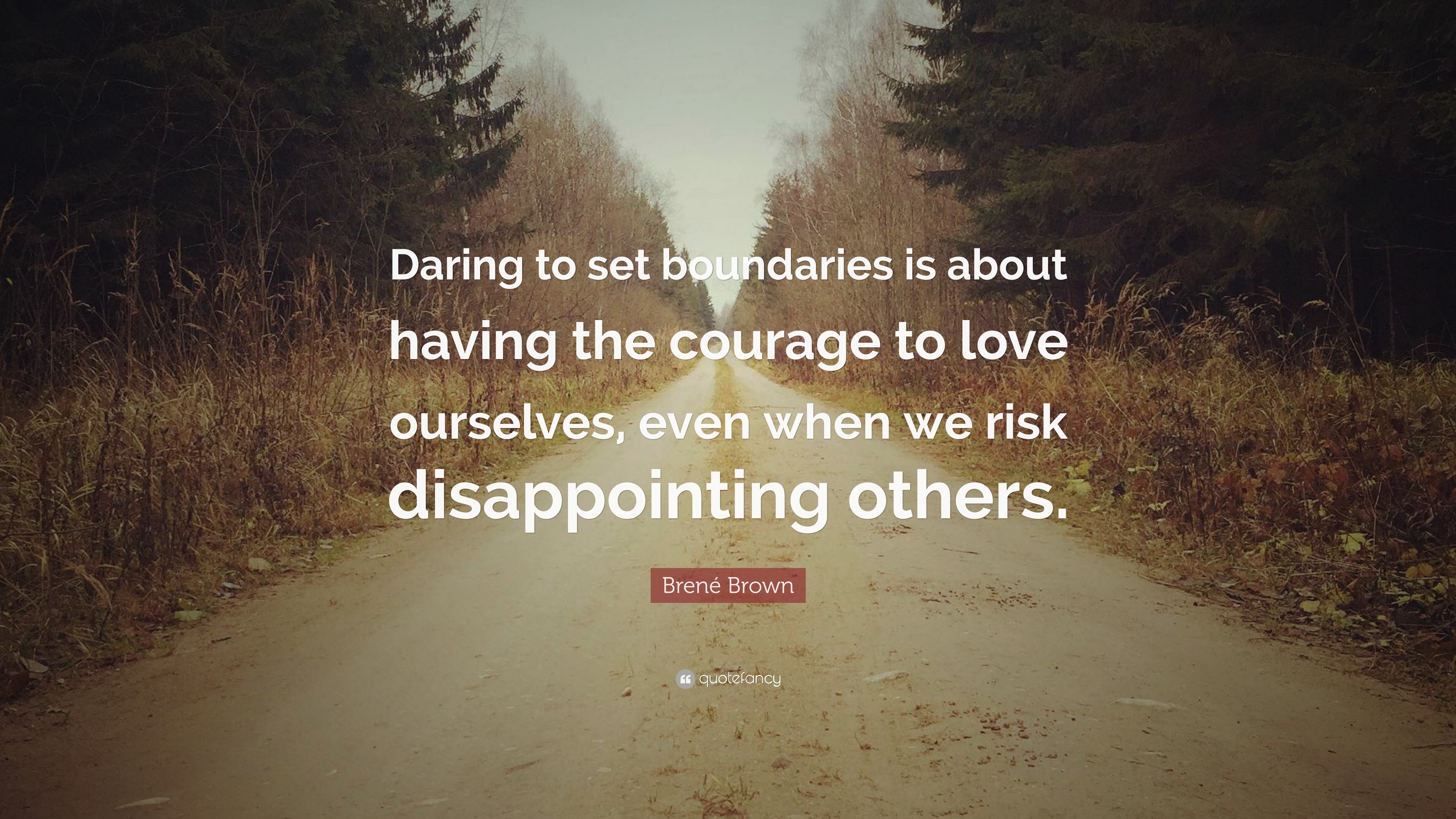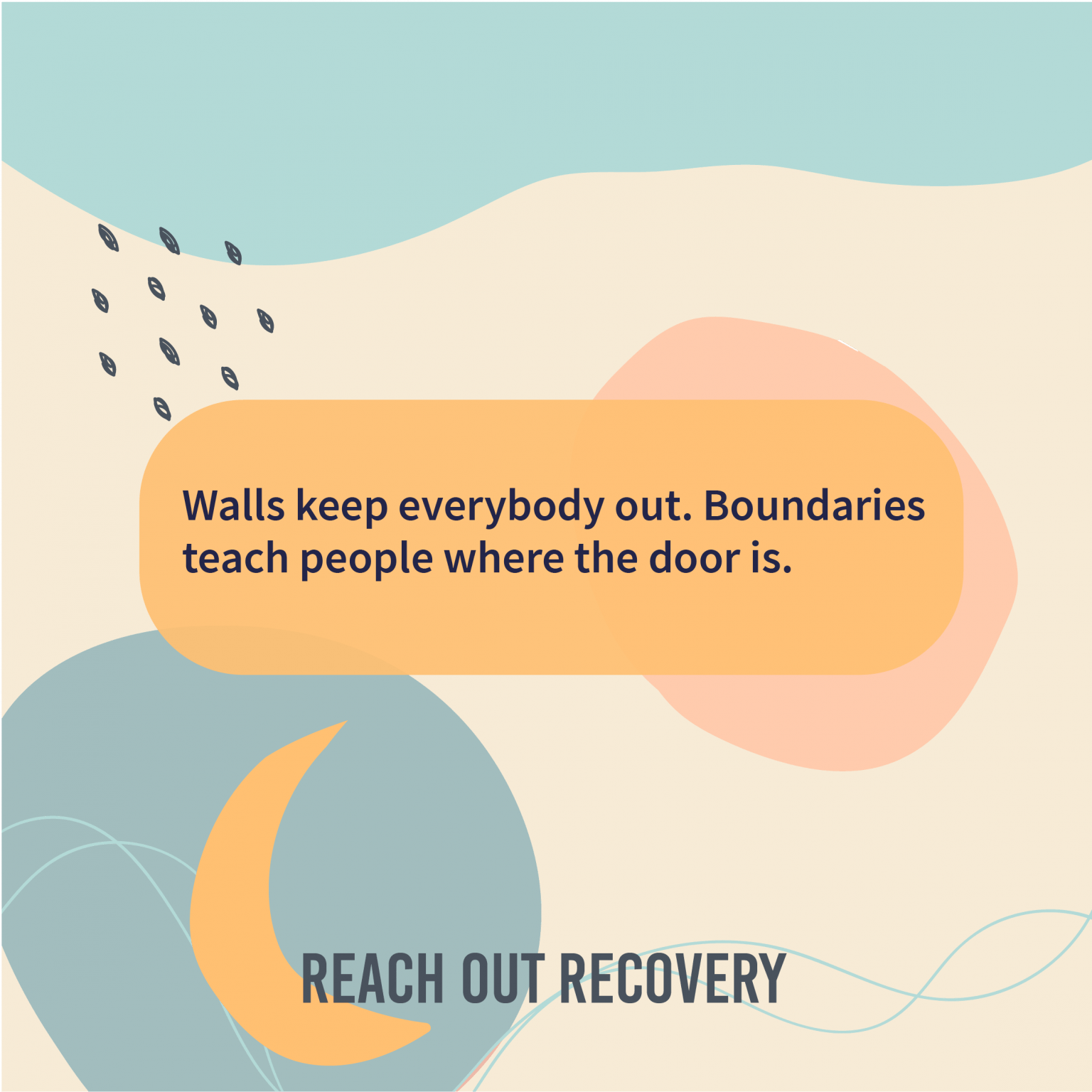Quote About Boundaries
A quote about boundaries is a statement that expresses the importance of setting and maintaining boundaries in various aspects of life. Boundaries can refer to physical, emotional, or mental limits that individuals establish to protect their well-being, autonomy, and personal space.
Setting healthy boundaries is crucial for maintaining healthy relationships, preventing burnout, and preserving one's sense of self. Boundaries help individuals communicate their needs, expectations, and limits to others, reducing misunderstandings and conflicts. They allow individuals to prioritize their own needs and well-being while respecting the boundaries of others.
There are numerous benefits to setting boundaries, including improved self-esteem, reduced stress, increased productivity, and stronger relationships. By establishing clear boundaries, individuals can create a sense of safety and stability in their lives, reducing the likelihood of feeling overwhelmed, taken advantage of, or disrespected.
quote about boundaries
Setting and maintaining boundaries is essential for healthy relationships, personal well-being, and productivity. Here are eight key aspects to consider when exploring quotes about boundaries:
- Definition: Boundaries are limits that individuals establish to protect their physical, emotional, and mental well-being.
- Importance: Boundaries help prevent burnout, misunderstandings, and conflicts.
- Benefits: Setting boundaries can improve self-esteem, reduce stress, and increase productivity.
- Communication: Boundaries involve communicating one's needs, expectations, and limits to others.
- Respect: Boundaries should be respected by both individuals involved.
- Enforcement: Setting boundaries requires consistent enforcement to be effective.
- Flexibility: Boundaries can be adjusted over time as circumstances change.
- Self-care: Establishing boundaries is an act of self-care and self-protection.
These key aspects highlight the multifaceted nature of boundaries, encompassing their definition, benefits, implementation, and significance in personal well-being. By understanding and practicing healthy boundary-setting, individuals can create and maintain fulfilling and respectful relationships, reduce stress, and prioritize their own needs and well-being.
Definition
In the context of "quote about boundaries," this definition highlights the fundamental purpose and nature of boundaries. Boundaries serve as protective measures that safeguard an individual's physical, emotional, and mental well-being. By setting and maintaining clear boundaries, individuals create a sense of safety, autonomy, and self-respect.
- Physical Boundaries: These boundaries relate to the physical space and body of an individual. Examples include maintaining a safe distance from others, controlling who has access to one's physical space, and setting limits on physical contact.
- Emotional Boundaries: Emotional boundaries protect an individual's emotional well-being. They involve setting limits on how others can affect or influence one's emotions, expressing feelings assertively and respectfully, and protecting oneself from emotional manipulation or harm.
- Mental Boundaries: Mental boundaries guard an individual's thoughts, beliefs, and values. They involve setting limits on what information or ideas others can share with them, protecting oneself from mental manipulation or coercion, and maintaining a sense of self-identity.
Understanding and respecting these different types of boundaries is crucial for fostering healthy relationships and maintaining personal well-being. By establishing and enforcing clear boundaries, individuals can create a safe and supportive environment for themselves and others.
Importance
In the context of "quote about boundaries," this statement underscores the crucial role boundaries play in promoting well-being and preventing common challenges in personal and professional interactions. Here are three key facets to explore:
- Preventing Burnout: Boundaries help individuals avoid feeling overwhelmed and depleted by managing their time, energy, and resources effectively. By setting limits on what they are willing to take on, they can prevent burnout and maintain their overall well-being.
- Reducing Misunderstandings: Clear boundaries promote open and honest communication, reducing the likelihood of misunderstandings and misinterpretations. When individuals communicate their expectations and limits, they create a shared understanding that fosters respectful interactions.
- Minimizing Conflicts: Boundaries help prevent conflicts by establishing clear guidelines for behavior and expectations. By setting limits on what is acceptable and unacceptable, individuals can reduce the potential for disagreements and power struggles, promoting harmonious relationships.
These facets highlight how boundaries are essential for maintaining healthy relationships, preventing misunderstandings, and reducing the risk of burnout. By understanding and practicing the importance of boundaries, individuals can create a more balanced and fulfilling life for themselves.
Benefits
In the context of "quote about boundaries," this statement highlights the transformative benefits of establishing and maintaining clear boundaries in various aspects of life. Here are three key facets to explore:
- Improved Self-Esteem: Setting boundaries communicates to oneself and others that one's needs, values, and well-being are important. This act of self-advocacy fosters a sense of self-respect and builds a strong foundation for healthy self-esteem.
- Reduced Stress: Boundaries help individuals manage their time, energy, and resources more effectively. By setting limits on what they are willing to take on, they can prevent burnout and reduce overall stress levels, creating a more balanced and sustainable lifestyle.
- Increased Productivity: Clear boundaries allow individuals to prioritize tasks and focus on what truly matters. By eliminating distractions and interruptions, they can work more efficiently and effectively, leading to increased productivity and improved outcomes.
These facets are interconnected and contribute to a holistic sense of well-being and personal empowerment. By understanding and practicing the benefits of setting boundaries, individuals can unlock their full potential and thrive in all areas of life.
Communication
In the context of "quote about boundaries," communication plays a pivotal role in establishing, maintaining, and respecting boundaries. Effective communication involves clearly and assertively expressing one's needs, expectations, and limits to others. This allows individuals to navigate interpersonal interactions with clarity, reducing misunderstandings and conflicts, while also fostering mutual respect and understanding.
- Clarity and Directness: When communicating boundaries, it is essential to be clear, direct, and specific. This involves using "I" statements, avoiding vague or ambiguous language, and providing concrete examples to illustrate one's needs and limits.
- Assertiveness: Communicating boundaries requires assertiveness, which involves expressing oneself respectfully and confidently. This does not imply aggression or hostility but rather a firm and self-assured manner that conveys one's needs and expectations.
- Active Listening: Effective communication also involves active listening, which entails paying attention to what others have to say, seeking clarification when needed, and demonstrating empathy and understanding. This helps build rapport and fosters a sense of mutual respect.
- Nonverbal Cues: In addition to verbal communication, nonverbal cues also play a significant role in conveying boundaries. Body language, facial expressions, and tone of voice can all communicate one's needs and expectations, reinforcing or contradicting verbal messages.
By understanding and practicing effective communication in the context of boundaries, individuals can build healthier and more fulfilling relationships, while also protecting their own well-being and personal space.
Respect
In the context of "quote about boundaries," respect is a fundamental principle that underpins the effectiveness and integrity of boundaries. When boundaries are respected, individuals feel valued, understood, and safe within their relationships and interactions.
Respect for boundaries manifests in various ways. It involves acknowledging and accepting the boundaries of others, even if they differ from one's own. It also entails honoring the limits and preferences of others, without attempting to manipulate or coerce them into changing their boundaries.
When individuals respect boundaries, they demonstrate a genuine concern for the well-being and autonomy of others. This fosters trust, strengthens relationships, and creates a positive and supportive environment. Conversely, disrespecting boundaries can lead to misunderstandings, conflicts, and a breakdown of trust.
Examples of respecting boundaries include:
- Asking for permission before entering someone's personal space or borrowing their belongings.
- Ending a conversation when someone indicates that they are uncomfortable or need space.
- Avoiding making unsolicited comments or advances towards someone.
Understanding and practicing respect for boundaries is essential for maintaining healthy and fulfilling relationships. It is a key component of "quote about boundaries" because it emphasizes the importance of mutual respect and understanding in setting and maintaining boundaries.
Enforcement
In the context of "quote about boundaries," enforcement plays a crucial role in ensuring the effectiveness and integrity of boundaries. Consistent enforcement is essential for setting clear expectations, maintaining respect, and preventing boundary violations.
Enforcing boundaries involves actively upholding one's limits and expectations, and responding appropriately when boundaries are crossed. This may involve setting consequences for boundary violations, such as limiting contact or ending a conversation, or having open and honest discussions about the importance of respecting boundaries.
Without consistent enforcement, boundaries can become and ineffective. Individuals may become confused about what is acceptable behavior, and may be more likely to push boundaries or disregard them altogether. This can lead to misunderstandings, conflicts, and a breakdown of trust.
Examples of enforcing boundaries include:
- Refusing to engage in conversations that violate one's boundaries.
- Setting limits on the amount of time or energy one is willing to give to others.
- Enacting consequences, such as ending a conversation or leaving a situation, when boundaries are crossed.
Understanding and practicing consistent enforcement is essential for maintaining healthy and fulfilling relationships. It is a key component of "quote about boundaries" because it emphasizes the importance of actively upholding one's limits and expectations.
Flexibility
In the context of "quote about boundaries," flexibility is a crucial component that acknowledges the evolving nature of boundaries and the need to adapt them as circumstances change. Boundaries are not static but rather dynamic, requiring individuals to be responsive and adaptable to shifting situations and needs.
Flexibility in boundaries allows individuals to maintain healthy relationships while also honoring their own needs and well-being. Life events, such as changes in relationships, career, or personal growth, may necessitate adjustments to boundaries in order to maintain balance and harmony. For example, an individual may need to establish stricter boundaries with family members to prioritize their own self-care or may need to adjust work boundaries to accommodate a new family situation.
Understanding and practicing flexibility in boundaries is essential for maintaining healthy and fulfilling relationships. It is a key component of "quote about boundaries" because it emphasizes the importance of being responsive to change and adapting boundaries accordingly.
Self-care
In the context of "quote about boundaries," establishing boundaries is closely intertwined with self-care and self-protection. Boundaries serve as a means of safeguarding one's physical, emotional, and mental well-being. By setting and enforcing boundaries, individuals prioritize their own needs and protect themselves from potential harm or exploitation.
- Prioritizing Needs and Well-being: Establishing boundaries allows individuals to prioritize their own needs and well-being. They can limit the amount of time and energy they devote to others, ensuring that they have sufficient resources to care for themselves.
- Protecting from Harm: Boundaries serve as a protective barrier against potential harm or exploitation. By setting clear limits, individuals can prevent others from taking advantage of them, disrespecting their values, or causing emotional distress.
- Maintaining Self-Respect: Establishing boundaries is an act of self-respect. It demonstrates that an individual values their own worth and is not willing to compromise their integrity or well-being to please others.
- Preventing Burnout: Boundaries help prevent burnout by limiting the demands that others can place on an individual. By setting limits on their time, energy, and resources, individuals can avoid feeling overwhelmed or depleted.
Understanding and practicing self-care through boundary-setting is an essential aspect of "quote about boundaries." It empowers individuals to take control of their lives, prioritize their own needs, and protect their well-being.
Frequently Asked Questions about Boundaries
The concept of boundaries is multifaceted and can raise various questions. Here are answers to some frequently asked questions to provide a deeper understanding:
Question 1: What is the purpose of setting boundaries?
Answer: Boundaries are essential for protecting your physical, emotional, and mental well-being. They allow you to communicate your needs, expectations, and limits to others, reducing misunderstandings and conflicts.
Question 2: How do I set healthy boundaries?
Answer: Setting healthy boundaries involves clearly defining your needs and limits, assertively communicating them to others, and consistently enforcing them. Be respectful of others' boundaries as well.
Question 3: What are the benefits of setting boundaries?
Answer: Setting boundaries can improve self-esteem, reduce stress, increase productivity, and strengthen relationships by preventing misunderstandings and conflicts.
Question 4: How do I enforce boundaries without feeling guilty?
Answer: Enforcing boundaries is not about being selfish but about prioritizing your own needs. Remember that you have the right to protect your well-being, and do so without feeling guilty.
Question 5: What if someone doesn't respect my boundaries?
Answer: If someone repeatedly disrespects your boundaries, it's important to address the issue directly. Communicate your concerns assertively, set consequences for boundary violations, and consider limiting contact if necessary.
Question 6: Can boundaries change over time?
Answer: Yes, boundaries can and should be adjusted as circumstances change. As you grow and evolve, your needs and priorities may shift, requiring you toconsider and modify your boundaries.
Understanding and practicing healthy boundary-setting is crucial for maintaining well-being and building fulfilling relationships. Remember that setting boundaries is not about isolating yourself but about creating a safe and respectful environment for yourself and others.
...
Tips Based on "Quote About Boundaries"
Establishing and maintaining healthy boundaries is crucial for well-being and fulfilling relationships. Here are some practical tips based on the insights from "quote about boundaries":
Tip 1: Identify Your Needs and Limits:Take time to reflect on your values, priorities, and what brings you comfort and discomfort. Clearly define your physical, emotional, and mental boundaries.
Tip 2: Communicate Boundaries Assertively:Openly and respectfully communicate your boundaries to others. Use "I" statements and avoid accusatory language. Be clear and direct about your needs and expectations.
Tip 3: Enforce Boundaries Consistently:Once you have established boundaries, consistently enforce them. Politely remind others of your limits and respond appropriately when boundaries are crossed.
Tip 4: Prioritize Self-Care:Setting boundaries is an act of self-care. Regularly evaluate your boundaries and adjust them as needed to protect your well-being.
Tip 5: Respect Others' Boundaries:Be mindful of others' boundaries as well. Pay attention to verbal and non-verbal cues, and respect their limits.
Tip 6: Seek Support:If you struggle with setting or enforcing boundaries, seek support from trusted friends, family, or a therapist. They can provide encouragement and guidance.
Tip 7: Practice Self-Compassion:Setting boundaries can be challenging at times. Be patient and compassionate with yourself as you navigate the process of establishing and maintaining healthy boundaries.
Tip 8: Remember the Benefits:Keep in mind the benefits of setting boundaries, such as improved self-esteem, reduced stress, and stronger relationships. These benefits will motivate you to prioritize and maintain healthy boundaries.
...
Conclusion
In exploring "quote about boundaries," we have delved into the multifaceted nature of boundaries and their profound impact on our well-being and relationships. Boundaries serve as protective measures that safeguard our physical, emotional, and mental health. By setting and maintaining clear boundaries, we create a sense of safety, autonomy, and self-respect.
Understanding and practicing healthy boundary-setting is an ongoing journey that requires self-awareness, assertiveness, and consistency. It is through the consistent enforcement of our boundaries that we communicate to ourselves and others that our needs and well-being matter. Moreover, respecting the boundaries of others fosters a culture of mutual respect and understanding, strengthening our relationships and creating a harmonious environment.
Light Skinned Keisha
India Jones Future Baby Mama Instagram
Lisa Wilson Mom

Doreen Virtue Quote “Boundaries are a part of selfcare. They are

Brené Brown Quotes (100 wallpapers) Quotefancy

Boundaries keep you healthy and emotionally independent
ncG1vNJzZmisn6jAb67LqJlnm5%2Bnsm%2FDyKebqK%2BjY7umwI6coKedp6h%2FcL3UqKueZZGXvLbAjJumrqaUlr%2BqsdJnn62lnA%3D%3D